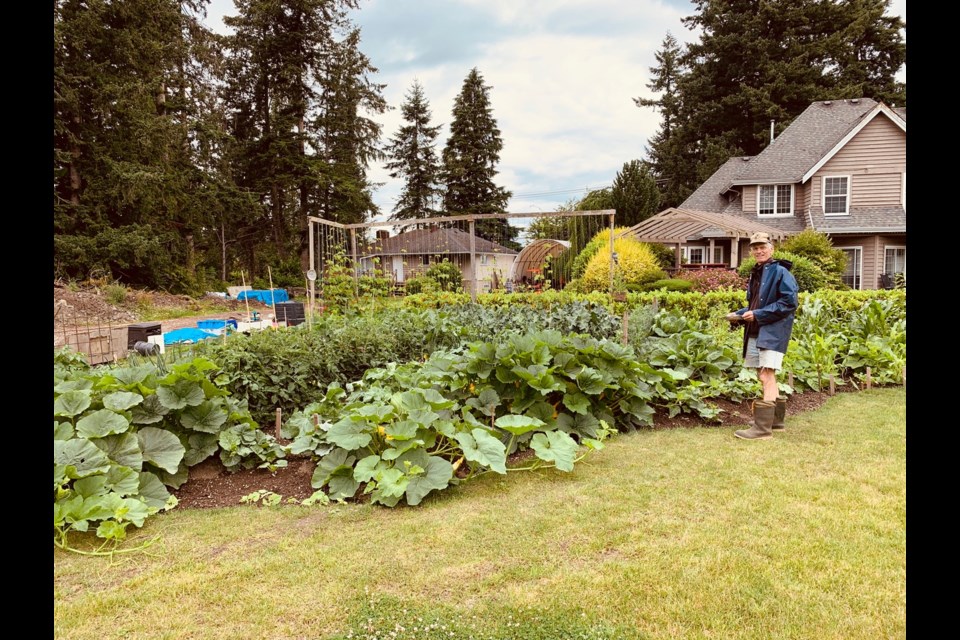Trevor Crean's family has been in the Vancouver funeral business for over a century (running Kearney Funeral Services), but their newest business is looking at how people memorialize death a bit differently.
Crean is the director at Heritage Gardens in Surrey, a business he and his father started a few years ago. It opened in 2019 and, as far as Crean knows, was the first cemetery to open in the region in around 50 years.
"Imagine what has changed in that time," he says.
In fact, he knows a bit about what's changed. Cremations are up and sustainability is a more prominent issue; both of those impacted how things are run.
While there are a variety of differences, one of the most grabbing is the vegetable garden currently being run by Crean's uncle. It's on a piece of land earmarked for a building, not graves, but that's a future project still years away.
"We're farming the land to make the most of the space. Otherwise, it'd be an empty space," Crean says. "Land is too valuable in Metro Vancouver to not use to its full potential."
However, the cemetery isn't a farm, and the food isn't sold. Instead, it's given to visitors at Heritage Gardens or organizations; last year 200 lbs were given to the local food bank and the Cloverdale Community Kitchen.
"We give it away because we're not in the farming business," Crean says. Corn, kale, tomatoes, radishes and pumpkins can all be collected by visitors.
The reaction has been mixed; online people react with surprise...and aren't usually very positive. Those who actually visit get it, he explains.
"Those families are like 'Oh my god, that totally makes sense,' and 'Way to go,'" Crean says.
Jars of honey from onsite bees help memorialize loved ones
Then there's the honey. People can sponsor one of the hives at Heritage Gardens in honour of someone. A bronze plaque can be made up and attached to the hive, and then the family has a place to visit and can get the honey with custom labels. Crean gives the example of jars with "Honey from Grandpa Jack's bees" on the label. Each hive produces around 50 lbs. of honey per harvest; sponsoring a hive doesn't have to be a long-term thing.
With around 90 per cent of families choosing cremations, Crean says an issue some face is a lack of place associated with who's passed. While a headstone and gravesite are very specific locations, an urn at home doesn't carry the same weight. He's also worked with people who've spread ashes somewhere, but then didn't have a focused point to visit.
Bronze plaques are popular for that, giving people a focal point for grief, and can be put with different trees or shrubs; there's the Willow Garden for that, where some people bring their own plants that might have a special connection with the person who's being laid to rest. Cherry trees are being planted as well, where people will be able to lay cremated remains.
Crean notes that while people can feel uncomfortable in cemeteries, gardens usually put people at ease.
It's 'the craft beer, farmers' market generation of cemeteries'
They also have Green Burial Garden, where bronze plaques are attached to driftwood. Once burials are done the land "will be restored to nature."
Crean notes they also work closely with specific communities, like people of certain faiths. 100 years ago groups would typically get one corner or a cemetery for themselves, but that's changed over time. One of the reasons Heritage Gardens was opened was to serve those faith groups that wanted to keep the community close.
But there's a lot of people wanting something different from the traditional, he adds, as society changes.
"They might just want a simple wooden cross or bronze plaque on driftwood," he says. "We're the craft beer, farmers' market generation of cemeteries, I guess you could say."



